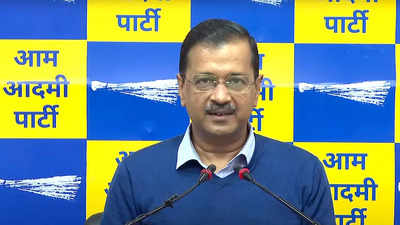
AAP’s announcement was made by senior party leaders who expressed their frustration over the Haryana talks and emphasized that the decision was final for the upcoming elections. This effectively puts an end to weeks of speculation about whether the two parties would join forces to counter the Bharatiya Janata Party (BJP) in Delhi. The collapse of talks in Haryana, which was primarily driven by disagreements over seat-sharing and political positioning, is being cited as the primary reason for AAP’s decision to go solo in Delhi as well.
Senior AAP members highlighted that attempts at forming a coalition with the Congress in Haryana had failed due to a lack of agreement on seat-sharing and broader political vision. The stalemate in Haryana has thus spilled over into Delhi politics, where AAP is the incumbent party, having secured consecutive electoral victories since 2015. Party insiders noted that any alliance with the Congress would now undermine their independent standing, both ideologically and electorally, especially in the capital.
The decision to contest independently is seen as a strategic move by AAP to consolidate its voter base and retain its distinct political identity. With Delhi set to be a crucial battleground, AAP’s leadership believes that entering into an alliance with Congress could dilute its influence among urban voters, who have remained loyal to the party over the last decade. Furthermore, AAP leaders have pointed to the Congress’s inconsistent stance on multiple issues and a lack of clarity in leadership, particularly in the national arena, as factors that would make an alliance unviable.
Political analysts argue that the dynamics between AAP and Congress have been strained for some time, with both parties often competing for similar voter demographics in urban constituencies. AAP’s rise in Delhi politics, primarily based on its governance model focusing on healthcare, education, and public welfare, has overshadowed the Congress, which has struggled to regain its footing since its electoral losses in the capital. The decision to part ways could now lead to a three-way contest between AAP, BJP, and Congress in Delhi, raising the stakes for all parties involved.
Despite the breakup, some Congress leaders had expressed hopes of continuing negotiations, particularly in regions where they share common ground with AAP, such as on issues of secularism and opposition to BJP’s central policies. However, AAP’s leadership has remained firm, stating that aligning with Congress would risk alienating its voter base, which expects the party to stand apart from the traditional political players.
The BJP, which is gearing up for an intense campaign in Delhi, stands to benefit from the split between AAP and Congress. With the opposition now divided, the BJP is likely to exploit the fragmented political space to make gains in key constituencies. BJP leaders have already signaled that they will intensify their outreach to voters in areas where both AAP and Congress have influence, positioning themselves as the more unified alternative.
AAP’s announcement comes as a blow to the broader opposition alliance efforts that were being shaped at the national level. Talks of forming a united front to counter BJP have been ongoing for months, but internal disagreements have hindered progress. The Haryana debacle has now cast a long shadow over any similar efforts in Delhi, where opposition unity was seen as critical to defeating the BJP in what is expected to be a fiercely contested election.
Within AAP, the decision to contest alone has been welcomed by party workers, who believe that the party’s governance track record will be sufficient to secure another victory in Delhi. AAP has consistently campaigned on its achievements in areas such as education, healthcare, and public infrastructure, and the party remains confident that its performance will resonate with voters. Senior leaders have already begun gearing up for the campaign, signaling that their focus will be on showcasing the party’s accomplishments and continuing its governance model without the baggage of coalition politics.
Congress, on the other hand, is facing an uphill battle in Delhi. The party has struggled to rebuild its organizational strength in the city since being decimated in the 2013 and 2015 elections by AAP’s rise. Although it retains some pockets of influence, particularly among older voters and minority communities, the lack of a coherent leadership structure and internal divisions continue to weaken its position. The party’s inability to strike a deal with AAP in Haryana and now in Delhi is seen as a significant setback to its revival plans in the capital.
